The applause began as the gavel fell.
In a Vermont federal courtroom packed with supporters, Mohsen Mahdawi stood in a plaid suit and gold-rimmed glasses, a black-and-white keffiyeh draped over his shoulders. The courtroom was silent until the judge’s ruling landed. Then, a ripple of clapping, muffled sobs, and quiet gasps of relief.
For the past two weeks, the government had kept Mahdawi in a detention facility after luring him to what he thought was a routine citizenship appointment. They’d hoped he would vanish quietly. Instead, he walked free—confident, unwavering, and unafraid.
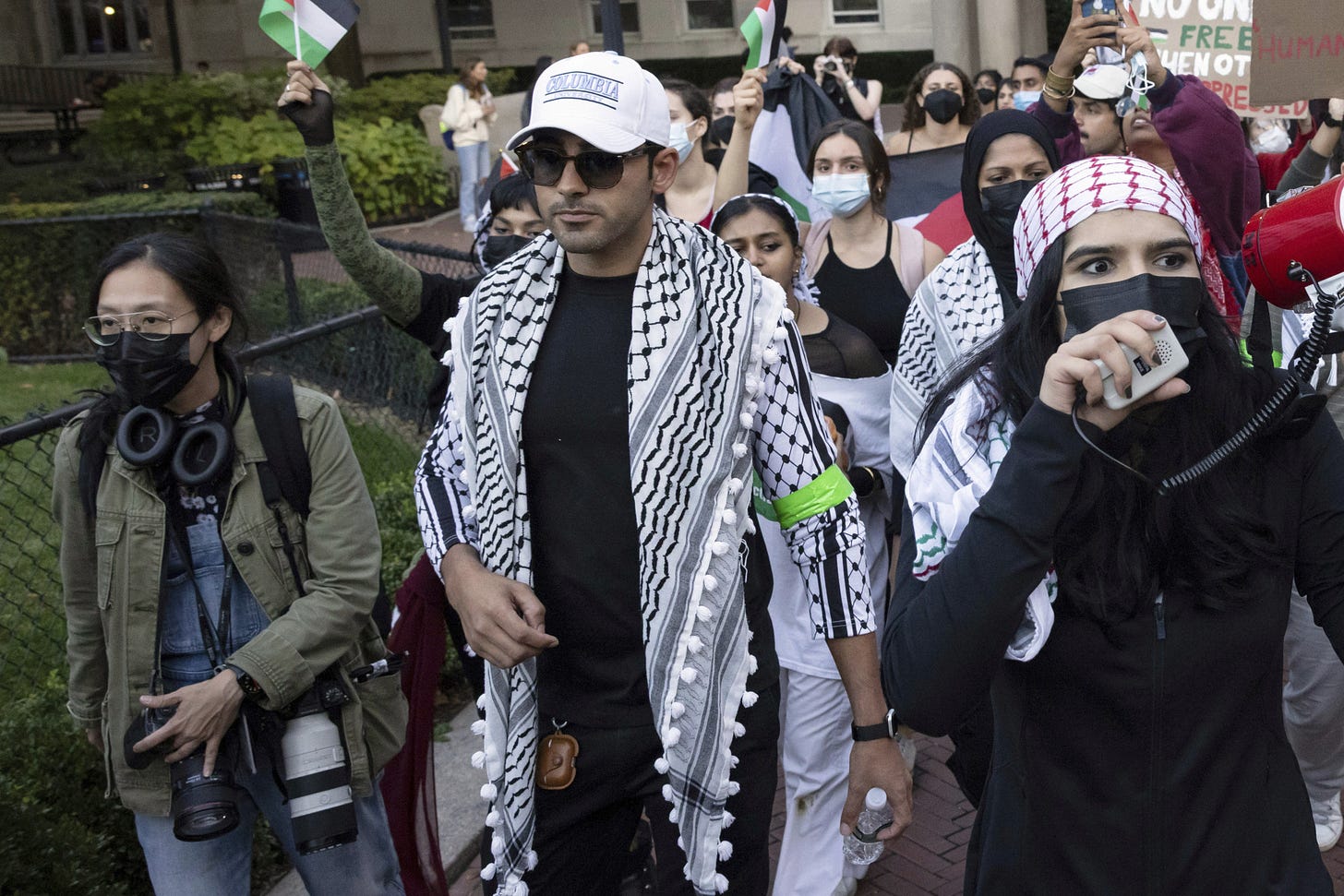
“I am saying it clear and loud,” he declared after his release, “to President Trump and his cabinet: I am not afraid of you.”
A Trap, Set in the Shadow of the Flag
This was not the ending they planned for him. But then again, Mohsen Mahdawi was never the kind of man who sat quietly.
Mohsen didn’t walk into that federal building naïvely. He had seen what happened to others—especially Mahmoud Khalil, another Columbia student swept from campus housing in March and imprisoned in Louisiana, denied even the chance to attend the birth of his first child. Mahdawi feared he’d be next.
Betar, a far-right pro-Israel group, had even posted online that he would be targeted.
So he reached out to Vermont lawmakers, alerted his legal team, and studied the Constitution the night before, just in case they really were going to quiz him at the naturalization interview.
What he encountered instead was a wall of masked federal agents. He was handcuffed and detained without any criminal charge. The alleged “threat” he posed? His peaceful protest work on behalf of Palestinians killed in Gaza—more than 50,000 dead, by most estimates. Secretary of State Marco Rubio had cited vague claims of Mahdawi’s activism “undermining U.S. foreign policy” as justification. The same exused used to target several other activists in the community, many of which also attended Columbia university.
It wasn’t evidence. It was a pretext.
Freedom, for now
Mohsen Mahdawi will now be allowed to return to Columbia to complete his academic program, a rare outcome in a system designed to disappear people before they ever reach a courtroom. A federal court order currently bars his removal or transfer out of Vermont, protecting him—at least temporarily—from being shipped to a hostile jurisdiction like Louisiana, where other student protestors have been fast-tracked through opaque hearings and quietly deported.
But the sword still hangs over him. His release does not mean the government has dropped the case.
The Trump administration continues to pursue his deportation using an obscure provision of immigration law normally reserved for spies, terrorists, and foreign agents deemed a danger to national security.
Mohsen, who has no criminal charges, is being accused of something far more abstract: “undermining U.S. foreign policy” through protest. That’s it. That’s the whole case.
It’s a dangerous precedent—one that turns First Amendment rights into grounds for exile.
The message is clear: you can live here, work here, study here, even pay taxes for a decade—but if you criticize a U.S. ally too effectively, you’re expendable.
Unless you're lucky enough to have the backing of U.S. senators, an elite legal team, and a national spotlight, you may never get the chance to argue otherwise.
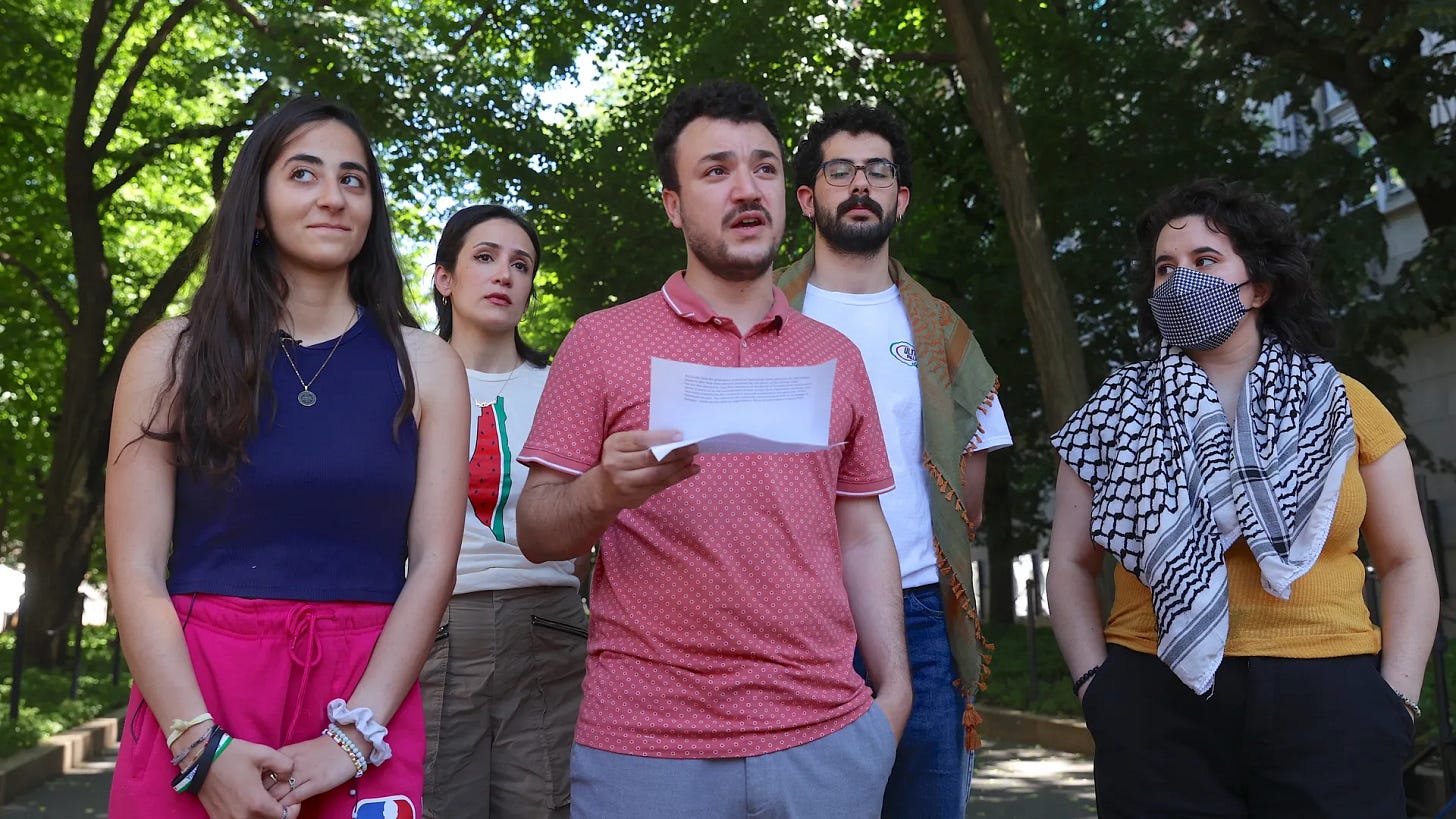
Others, like Mahmoud Khalil, weren’t so fortunate. Khalil remains detained in a Louisiana ICE facility, despite being a legal permanent resident with a newborn child in New York. His only “offense” was organizing and participating in similar protests at Columbia. He wasn’t given bail. He wasn’t given the chance to speak to cameras. He wasn’t even allowed to witness the birth of his own son.
Make no mistake: Mohsen’s freedom isn’t proof the system works. It’s proof that pressure works. His release is the exception, not the rule. Most people targeted this way don’t get 90 character letters from professors. They don’t have cameras waiting outside the courthouse. They don’t have Bernie Sanders calling ICE on their behalf.
They vanish—without hearings, without headlines, without hope.
A Voice They Couldn’t Silence
As Mohsen Mahdawi stepped out of federal custody and into the crisp Vermont air, he didn’t hesitate, didn’t shrink. There were no signs of fear in his posture, no tremble in his voice. Surrounded by supporters and cameras, he looked into the lenses—into the eyes of the public—and did what they tried to stop him from doing: he spoke.
“They arrested me. What’s the reason?” he asked with quiet conviction. “Because I raised my voice and said no to war, yes to peace. Because I said, ‘Enough is enough.’ Killing more than 50,000 Palestinians is more than enough.”
There was no grand podium, no staged rally, no handlers whispering behind him. Just a man in a suit, a keffiyeh slung around his shoulders, speaking truth in a moment designed to humiliate him into silence.
He had been disappeared for two weeks—ambushed by masked agents, held without criminal charges, and nearly removed from the country he’s called home for ten years.
And yet, standing there, free and unbroken, he embodied a defiance that no policy could cage.
In that moment, Mohsen was no longer just a graduate student or a campus organizer. He was a living indictment of the administration’s repression—and a beacon to every protester wondering if it’s still safe to speak. His words were not merely a reflection of pain or anger. They were a declaration of survival. A reminder that dissent is not a threat—it is a pulse. The government tried to extinguish it. Instead, they amplified it.
By attempting to make an example of him, they did. Just not in the way they intended.
This Victory Belongs to All of Us
His attorney, Shezza Abboushi Dallal, captured the moment with striking clarity:
“It is a victory for Mohsen who gets to walk free today… and it is also a victory for everyone else in this country invested in the very ability to dissent.”
This ruling wasn’t just about one man being released from federal custody. It was about reaffirming the right to speak truth to power without being dragged into the shadows. In an era where the state uses surveillance, immigration law, and political smear campaigns to muzzle protest, Mahdawi’s release stands as proof that resistance still matters—that it still works. But only barely.
It should never have come to this. A man should not have to rely on congressional intervention and viral headlines just to avoid being deported for protesting genocide. A courtroom shouldn’t have to serve as the last line of defense for free speech. But here we are. And in that courtroom, for once, the law pushed back against repression. It bent toward justice, if only by a margin.
The truth is: this wasn’t just Mohsen’s win. It was a warning shot. A momentary light in a system designed to operate in darkness. It reminds us that legal resistance is still possible, but precarious. That every inch we win is because someone fought tooth and nail—not because the system worked, but because we refused to let it destroy another voice in silence.
Call to Action: Don’t Let Them Take the Next One
Today, we celebrate. Tomorrow, we fight again.
Because while Mohsen Mahdawi walks free, others remain behind bars—stripped of their liberty for no crime greater than protest. Students like Mahmoud Khalil are still locked in ICE facilities, hidden from the public eye, denied access to family, community, and in some cases, even legal counsel. They don’t have a courtroom full of press. They don’t have Bernie Sanders making calls. They’re just...gone. Quietly disappeared under the banner of "national security."
Let’s be clear: this wasn’t an isolated abuse of power. It was a test balloon. A blueprint. And unless we tear it down, it will be used again—and more aggressively. If the government can weaponize immigration law against peaceful demonstrators today, they will expand that tactic tomorrow. Protest will be labeled sabotage. Advocacy called extremism. And eventually, citizenship won’t shield you either.
So here’s what we do:
Call your lawmakers. Demand transparency in student deportation cases.
Demand ICE release those held for constitutionally protected speech.
Amplify stories like Mohsen’s. Especially the ones that don’t go viral.
Don’t let silence become complicity.
Because what happened to Mohsen could happen to any one of us who dares to speak. And if we stay quiet now—if we shrug, scroll past, or assume it won’t be our name next—they will keep going.
And they will make sure we never speak again.
If you made it this far — thank you. This blog is completely free and always will be. I write to make sense of the chaos, connect the dots, and say the quiet part out loud when no one else will.
I’m going to keep speaking out for everyone else being targeted for using their voice. This isn’t just his story—it’s part of a bigger pattern, and it deserves more attention.
See you in the next one ♥






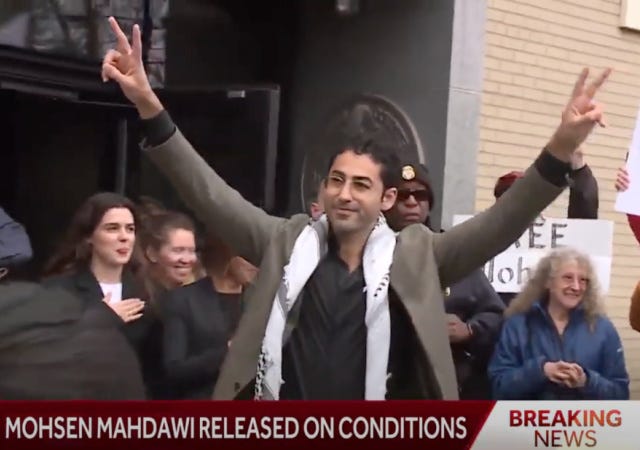

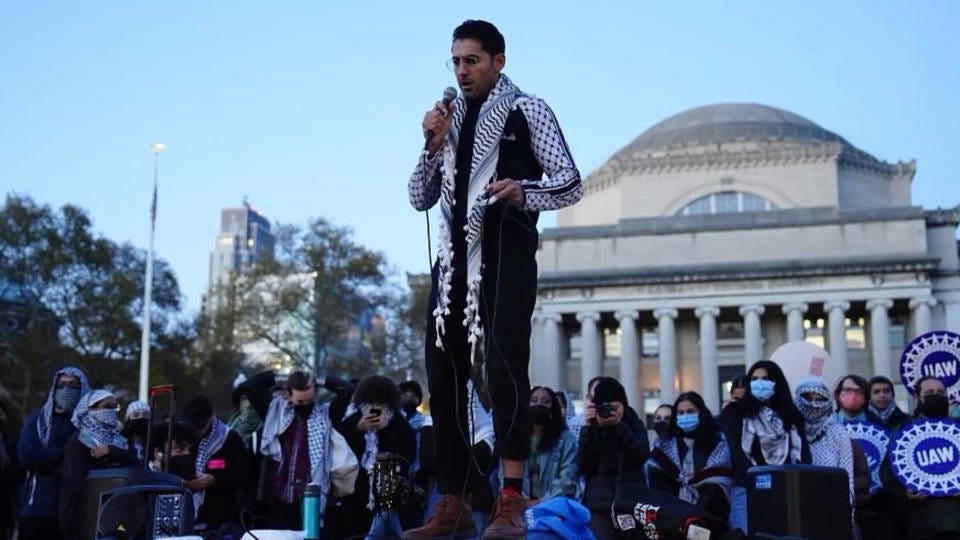
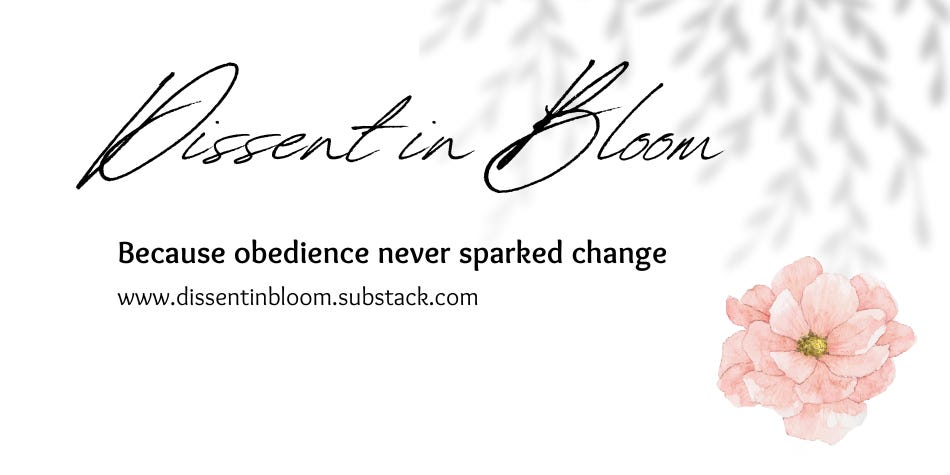
Now for all the rest! We need to get them all freed and back here.